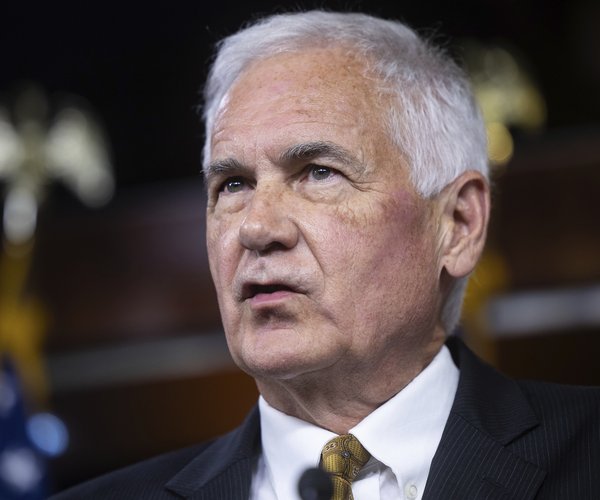A care facility for troubled youth, located on the outskirts of Turlock, will expand despite concerns from local law enforcement officials.
The Stanislaus County Board of Supervisors on Tuesday night unanimously approved plans to expand Aspiranet’s Hope Forward campus at 2513 Youngstown Rd. near the Merced County line. Upgrades to the near 11-acre facility include more than 40,000 square feet of new facilities including a psychiatric health facility, as well as buildings for vocational and recreation services, and a visitation center.
Stanislaus County Sheriff Jeff Dirkse and Turlock Police Chief Jason Hedden, as well as Lt. Brokel Nobari of the Merced County Sheriff’s Department, were cautious in throwing their support behind the project.
“I want to be very clear, I’m not in opposition to this project,” said Dirkse, who is midway through his second term. “I do understand the need that we have for a facility like this. My concern is the public-safety risk that this facility has historically posed to our county.”
Dirkse pointed out that the Sheriff’s Department had 199 calls for service in 2019 and 219 calls for service the following year — nearly 10 times higher than the next highest location in the county.
Dirkse said that meetings with Aspiranet officials in 2021 were productive, resulting in just nine calls that year, 35 calls in 2022, and 37 in 2023.
“The challenge that we have now is … the type of calls we have for service there,” said the sheriff. “Many of them require several staff members. In fact, that location specifically has been designated that any response there requires a sergeant and three deputies. And if we are at minimum staffing that day, that is roughly one-third of all the deputies available for our county at any one time.”
With the average call for service taking 1.7 hours — down from a peak of 2.1 hours — it’s the equivalent of one full-time deputy day.
“That’s a huge resource drain on our office,” said Dirkse.
In 2022, Aspiranet received more than $33 million via the state’s Behavioral Health Continuum Infrastructure Program.
District 2 County Supervisor Vito Chiesa shared law enforcement’s concerns while seeing the expansion as a rare opportunity for the county.
“I’m glad to hear that nobody here has said anything about the need, because we know the need,” said Chiesa. “This is once-in-a-lifetime money.
“It’s really about the security plan, and how we operate with that. I do believe with the security plan I’ve seen … it will be easier to deal with the situation now with a locked facility.”
Aspiranet CEO Vernon Brown said plans for a 10-foot cinder-block wall surrounding the compound, as well as on-site cameras, and an increase in staff, will help mitigate concerns.
“I think what’s important to recognize is that earlier, back in the period of time that’s being quoted in terms of the amounts of calls, we were dealing mostly with youth that were engaged in probation. They were juvenile adjudicated youth,” said Brown, who is applying for state licensing to nearly double the facility’s capacity from 16 to 31. “This program we’re proposing, and the expansion, is a consortium of Stanislaus, San Joaquin and Merced counties, in working to deal with the crisis in elements that occur with youth, both boys and girls … and these are youth that are in foster care and need a very high level of services.”
At Dirkse’s request, the board included a provision that extends authority to the Sheriff’s Department to step in and refer the matter to the planning commission for review if the expanded center becomes a burden to law enforcement.
Chiesa objected to creating that kind of precedent, but Supervisors Buck Condit, Terry Withrow, Mani Grewal and Channce Condit supported the provision — despite county counsel Thomas Boze saying there was no legal basis for it.
The site is currently developed with 35,000 square feet of building space, which includes four group homes, a private school, and accessory buildings used for the residential care services on site.
The facility has been in operation since 1978 and is currently providing services to 16 youths age 12-18.
Upgrades are expected to be completed by July 2026.





